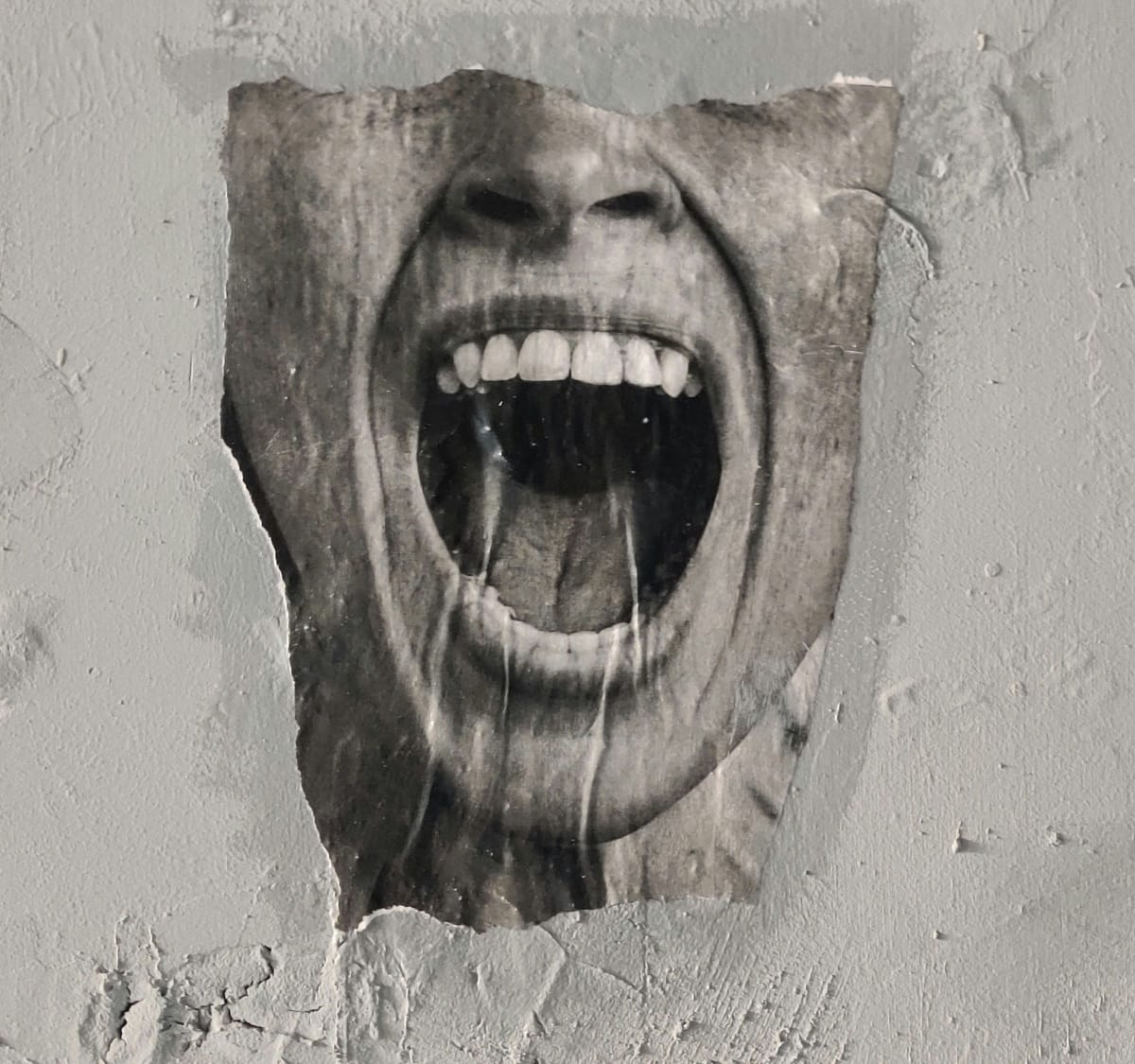The Boy Who Cried Dictator: How Political Hyperbole Undermines Democracy
When every rival is branded a tyrant, language corrodes, facts blur, and democracy weakens. Hyperbole thrills the faithful but dulls vigilance. Proportion, not catastrophe-speak, is the true defense of freedom.

◳ Why exaggeration corrodes language, distorts judgment, and ultimately defeats those who embrace it.
Democratic politics has always involved theater—rallies, slogans, the choreography of indignation. But there is a line beyond which performance ceases to illuminate reality and begins to replace it. In recent years, that line has been crossed with increasing frequency. Labels once reserved for the gravest historical evils—fascist, authoritarian, dictator—have been deployed so promiscuously that their meanings have thinned. The shared world necessary for argument has begun to fray, especially when such charges are hurled in moments that most clearly belie them—such as immediately after a democratic election, when the normal rhythms of civic life testify that no dictatorship is at hand.
The effects are self-defeating. Each escalation may gratify the speaker and cast them as morally vigilant, but it alienates potential allies, exhausts the public’s attention, and dulls the very vocabulary on which democracy depends. Hannah Arendt’s warning remains chilling: “The ideal subject of totalitarian rule is not the convinced Nazi or the convinced Communist, but people for whom the distinction between fact and fiction… no longer exists” (The Origins of Totalitarianism, 1951). If politics teaches citizens to live inside curated fictions—whether apocalyptic scripts on the left or conspiratorial myths on the right—the result is disorientation. Facts cease to anchor argument; they become props for a narrative. A democracy can survive fierce conflict; it cannot survive the loss of common bearings.
If politics trains citizens to live inside curated fictions—whether the apocalyptic scripts of the left or the conspiratorial myths of the right—the result is disorientation.
This reflection examines the contemporary drift toward catastrophe-speak not as partisan scorekeeping but as a distortion that damages everyone. Hyperbole is a poor instrument of persuasion and an even poorer instrument of truth.
The very word signals its intent. Hyperbole—from the Greek hyperballein, “to throw beyond”—was once a rhetorical device of orators. Today it has migrated into the bloodstream of politics as strategy: a way to heighten drama, sharpen division, and claim the moral stage. Its psychology is recognizable and its tools are ready to hand.
Frames that pre-judge reality. George Lakoff has shown how politics operates through “frames”—stories that pre-sort facts before they appear (Don’t Think of an Elephant!, 2004). Place an adversary inside an “existential threat” frame, and evidence is metabolized as confirmation; counter-evidence becomes complicity.

Moral absolutism. Appeals to justice, dignity, and rights are noble, but absolutized they cast opponents as enemies of humanity. Compromise turns into collaboration; persuasion becomes treason.
Catastrophe as mobilizer. Apocalyptic narratives have long been political accelerants. In the age of cable news and social media, they travel faster than ever—boosting ratings, clicks, and donations. But what begins as a tactic of engagement reshapes perception itself. Eric Voegelin warned that ideologies construct “second realities,” fictitious worlds that feel more compelling because they simplify. “The essence of the second reality,” he wrote, “is that it is a screen against reality; it blocks out experiences of disorder and replaces them with an image of order that is, in truth, a fantasy” (The New Science of Politics, 1952). Inside such a world, politics is not bargaining among factions but a morality play: heroes and villains, saviors and traitors, with the ending already foretold. Catastrophe-talk narrows vision, making compromise seem betrayal and blinding citizens to the slower, more difficult work of persuasion. Isaiah Berlin named this temptation “the great simplifiers”—those who flatten plural human purposes into a single scale of good and evil (Against the Current, 1979). Simplicity comforts; reality resists.

A Recurrent Temptation
The inflation of adversaries into existential threats is a recurring feature of democratic life. McCarthyism in the 1950s showed how the right could conjure treason from dissent. In the 1960s, Johnson and Nixon were cast in fascist terms, with rhetoric escalating faster than political reality. In the 2000s, George W. Bush was branded “the new Hitler” and the Patriot Act compared to the Nuremberg Laws. More recently, populist leaders in the United States and Europe have been described as dictators or heir to real ones, even as they governed within democratic frameworks.
The pattern is bipartisan and transnational. The right deploys its own repertoire—“socialist,” “communist,” “puppet.” Yet in the last decade, catastrophe-speak has been especially pronounced on the left, amplified by institutions—universities, media, NGOs—that claim often a higher degree of morality. When such custodians of knowledge indulge in melodrama, they impoverish the very language needed to identify genuine threats.
How Hyperbole Pays. And Why It Backfires
Hyperbole pays immediate dividends. It delivers headlines, rallies supporters, and confers the glow of moral urgency. But the costs are profound.
- It erodes shared reality. Ordinary disputes narrated as regime-change or genocide dissolve the common world needed for argument. Arendt warned that fiction replacing fact destroys “the sense by which we take our bearings in the real world” (Between Past and Future, 1961).
- It degrades language. Words like fascism and genocide are not all-purpose cudgels; they name historical horrors. Overuse blunts them. Alasdair MacIntyre observed that once moral traditions collapse, language survives only as fragments—sound without grammar (After Virtue, 1981).
- It exhausts vigilance. Tocqueville saw democracies as “excitable, irritable, and changeable in their opinions,” quick to take alarm yet just as quick to tire of it (Democracy in America, II.iv.6). A politics of permanent emergency produces fatigue, not vigilance. A polity that lives on sirens will sleep through the blaze.
- It misreads the audience. Hyperbole is excellent at self-positioning—signaling to one’s own side that one is righteous—but poor at persuasion. To outsiders it often sounds like contempt, confirming rather than dissolving division.
Institutions Under Challenge
Exaggeration is rarely a standalone choice; it's often a symptom of institutional anxiety, a fever that spikes when a body's traditional authority feels threatened. We are living through a profound crisis of legitimacy for the legacy institutions—universities, news organizations, and NGOs—that have long served as society's arbiters of knowledge and value. Their turn toward hyperbolic language is not merely a defensive tactic, but a window into a deeper struggle over their role and credibility.
This dynamic is a feedback loop. On one side, populist tribunes and digital insurgents launch critiques that are at once substantive and cynical, targeting real vulnerabilities like ideological homogeneity in academia or perceived media bias. On the other, the institutions under fire often lose the ability to distinguish between a challenge to their consensus view and an attack on their core mission. In an environment of intellectual conformity, the two can become dangerously conflated.
Thus, a pointed critique of a university's curriculum is no longer processed as a debatable point of pedagogy but is framed as an existential "attack on knowledge itself." A deep skepticism of journalistic framing is met not with introspection but with the sweeping claim that "truth itself is under assault." A policy challenge to an NGO is interpreted as a rejection of justice.
The tragedy here is the atrophy of the argumentative muscles needed for a true pluralist democracy. When an institution’s internal consensus is so strong that it forgets how to persuade outsiders, it defaults to the language of moral emergency. Hyperbole becomes the last resort for those who have lost the habit of patient persuasion. This is where Raymond Aron’s warning about ideology as an "opium" finds its modern echo. The drug isn't ideology per se, but the insular comfort it provides. By retreating into a "second reality" where their authority is absolute and their critics are malevolent, these institutions may win the battle for their own moral self-assurance, but they risk losing the war for the shared reality upon which a discordant but functional democracy depends.
Ideas for a Politics of Proportion
- Name the thing, not the nightmare. If a leader scorns institutional limits, document it; if he attempts to overturn lawful outcomes, treat it with gravity. But resist analogies to the worst regimes in history. Proportion is not timidity; it is fidelity to truth.
- Husband the language. Reserve fascism and genocide for cases that meet their historical thresholds. This is not pedantry but stewardship. As Isaiah Berlin insisted, the first duty is “to call things by their right names” (Political Ideas in the Twentieth Century, 1950).
- Rebuild argumentative patience. Outrage cannot replace persuasion. The craft of politics lies in moving the unconvinced, not thrilling the convinced.
- Practice moral humility. Aleksandr Solzhenitsyn, reflecting on his years in the Soviet gulag, warned against the comforting illusion that evil exists only “out there” in other people or in hostile regimes. “The line dividing good and evil cuts through the heart of every human being” (The Gulag Archipelago, 1973). His insight is bracing: no ideology, party, or nation has a monopoly on virtue, and none is immune to corruption. To keep that truth nearby is to resist the temptation of demonology in politics—the habit of imagining opponents as pure embodiments of evil while exempting ourselves from the same scrutiny.
Clear Eyes in a Noisy Age
Democracy depends on two fragile assets: a shared world of facts sturdy enough to bear disagreement, and a moral language sharp enough to distinguish the serious from the merely loud. Hyperbole jeopardizes both. It converts politics into spectacle, deliberation into denunciation and permanent theatre. It makes us righteous and less right at the same time.
To prefer catastrophe to argument is to play with fire. It warms the faithful and burns the house.
The task is not to mute judgment but to refine it; not to lower the temperature for its own sake but to recover the grammar of proportion on which any common life depends. To prefer catastrophe to argument is to play with fire. It warms the faithful and burns the house.
Postscriptum: Hannah Arendt saw more clearly than most that freedom itself depends on a shared factual world. Opinions may legitimately differ, she argued, but they lose meaning once they are cut loose from truth. Without facts as common ground, politics dissolves into performance, and freedom becomes an illusion. As she wrote in her 1967 essay Truth and Politics:
“Freedom of opinion is a farce unless factual information is guaranteed and the facts themselves are not in dispute. Facts inform opinions, and opinions, inspired by different interests and passions, can differ widely and still be legitimate as long as they respect factual truth. But once the factual world—the very ground on which we stand and the sky that stretches above us—is no longer secure, then freedom of opinion becomes a cruel mockery, and with it goes the very reality of the political realm.” Hannah Arendt, Between Past and Future (1961), essay “Truth and Politics.”
◳





